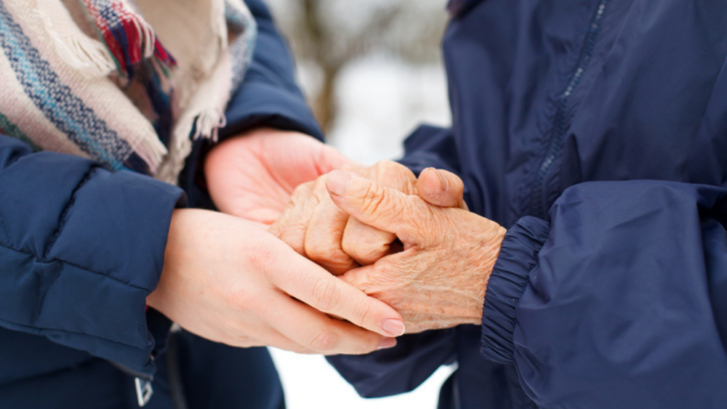How Can I Best Protect My Mental Health This Winter?
The holidays are a beautiful and generally celebrated time of year, but they can oftentimes be very difficult and hard to manage, especially for those struggling with mental health issues like depression and anxiety, or those who are recovering from life-altering injuries. According to Transformations, winter lifestyle changes and shorter daylight hours can often be the cause of physical inactivity, greater melatonin production, and decreases in Vitamin D absorption, which can contribute to preexisting depression and anxiety and increase the likelihood of seasonal affective disorder, or SAD.
In order to help you stay proactive in the coming colder months, we’ve compiled a short and simple list of things that you can do to take extra care of your body, and your mental health:
-
Don’t Drop Your Workout Routine
Though it can be harder to want to brave the cold to work out, staying in shape and maintaining a healthy workout routine are some of the best ways to keep your mind fit. Read our article on safely working out in the winter to learn more about safe outdoor exercising, or, if you prefer to start working out indoors instead, get started with this one that has some great beginner yoga stretches.
-
Re-Up Your Vitamin Supply
COVID-19 stay at home restrictions and colder weather have made it increasingly difficult to get an adequate amount of outdoor time, which means you probably aren’t getting as many vitamins as your body is used to. By investing in a daily multi-vitamin, or others like Vitamin D, Vitamin C, and Omega 3, you can help ensure that you’re fulfilling your vitamin intake, regardless of your dietary intake.
Remember to talk to your healthcare provider about what vitamins may or may not be beneficial to you, especially if you have any pre-existing medical conditions or are currently taking any supplements or medications. Healthy tips are not a replacement for professional medical advice.
-
Be Mindful of Your Diet
Feeling physically healthy has a large effect on how you feel inside, even on your worst days. By working to maintain a healthy diet, you’ll be able to prevent lethargy and feel more energy, which will help give you the drive to continue pursuing your favorite hobbies and interests, too. Mindful eating and the Sample Method are great ways to get started, if you’re unsure about where to begin.
-
Keep In Touch
It’s hard to compensate for missed physical human touch and connection, but just because you can’t physically spend the holidays with your loved ones, doesn’t mean that you have to be far away. Strong emotional connections are just as important and necessary as physical ones, and can be maintained while social-distancing – we recommend creating a family meme group chat, scheduling a movie night on Netflix party, or planning a Zoom or FaceTime call to start catching up with your loved ones.
Are you being affected by poor mental, emotional, or physical health, and feel the need to seek non-emergency medical attention? Healthpointe has a wide range of specialties from psychological treatments to orthopedic care, and we can find the right treatment for you. To make an appointment, call (888) 824-5580, or click here to schedule.
If you or someone you know is having suicidal thoughts or feelings, get help now. Go to the emergency room, or contact a mental health professional as soon as possible. If you are unable to travel, or need more immediate assistance, call a suicide hotline or 9-11.
The National Alliance on Mental Illness (NAMI) has a list of numbers that include, but are not limited to:
The American Foundation for Suicide Prevention (888-333-2377)
The Suicide Prevention Lifeline (800-273-8255)
Anxiety and Depression Association of America (ADAA) (240-485-1001)
Depression and Bipolar Support Alliance (DBSA) (800-826-3632)
International OCD Foundation (617-973-5801)
To learn more about these resources, as well as other HelpLine Resources, and other associations and organizations that provide advocacy and legal help, financial assistance, and community support services to those struggling with mental illnesses, you can go here.

